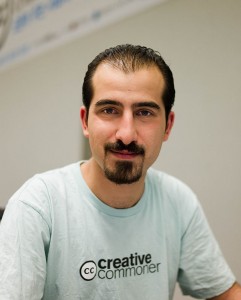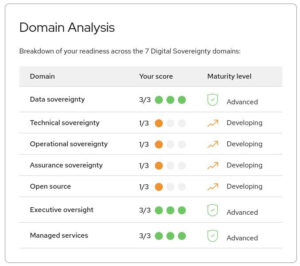The day has changed, but the commentary remains the same: In a minor FOSS Force shuffle, I’ve moved from giving commentary on Wednesdays to giving it on Mondays. And while there is no one item that stands out in a grand way to start the week, there’s no reason we can’t begin the week with several smaller items, right?
 LibreOffice has won, get over it: Last week, I innocently posted an article on Facebook about LibreOffice’s fifth birthday — yes, it has been five years, surprisingly — and for some reason it ran into some resistance from one friend who isn’t exactly too fond of the name “LibreOffice” — “Libre isn’t English” (huh?) — and he seems to think that the remnants of OpenOffice are better served if the LibreOffice folks just fold up their tent and rejoin OpenOffice. Yeah, I laughed too. That’s not going to happen because, for all intents and purposes, OpenOffice was fatally poisoned as soon as Oracle got a hold of it, making the LibreOffice fork necessary. If anything, OpenOffice developers should drop OpenOffice and join LibreOffice. Anyway, happy 5th, LibreOffice.
LibreOffice has won, get over it: Last week, I innocently posted an article on Facebook about LibreOffice’s fifth birthday — yes, it has been five years, surprisingly — and for some reason it ran into some resistance from one friend who isn’t exactly too fond of the name “LibreOffice” — “Libre isn’t English” (huh?) — and he seems to think that the remnants of OpenOffice are better served if the LibreOffice folks just fold up their tent and rejoin OpenOffice. Yeah, I laughed too. That’s not going to happen because, for all intents and purposes, OpenOffice was fatally poisoned as soon as Oracle got a hold of it, making the LibreOffice fork necessary. If anything, OpenOffice developers should drop OpenOffice and join LibreOffice. Anyway, happy 5th, LibreOffice.
The Internet of (Way Too Many) Things Is a Hazard: Call me a Luddite. I don’t care. But I don’t need to turn on my thermostat with my smartphone — it’s easy enough to click it on when I return home. I don’t need my refrigerator or washing machine to talk to my computer or smart phone — I can tell when food is being preserved well enough by opening the refrigerator door or realizing the spin cycle is done by looking at the washer. A strong argument can be made for the fact that what is nebulously called the “Internet of Things” — or as The New York Times and I call it, the “Internet of (Way Too Many) Things” — is merely a way to monetize technology to dupe people into buying into and/or paying more for things they don’t need. That’s the good part, because the bad part is that the Io(WTM)T can cause significant problems in the wider tech world. According to Vince Cerf, quoted in an article in Motherboard, the headline “100,000 Fridges Hack Bank of America” is not so far-fetched.
From the article: “It’s not a silly headline, because the computers we use today to build into appliances may actually turn out to be pretty powerful machines,” Cerf explained. “It’s hard to get a dumb computer these days, or an inadequate one, and so they could be running operating systems like Linux or Chrome or Android, and you could outfit them with malware that allows that refrigerator, not only to do all the thing it’s supposed to do, but send out spam or launch denial of service attacks.”
So there you are: Your baby monitor may be performing nefarious actions and you would never know it. Sleep soundly.
 Almost Ready for Prime Time: BunsenLabs Linux, a successor to CrunchBang GNU/Linux formed by a group of the CrunchBang’s admins and other adherents when CrunchBang lead developer Philip Newborough decided to move on, is in the starting blocks with its first release candidate now available online. For the uninitiated, BunsenLabs retains the same lineup as CrunchBang — Debian Jesse under the Openbox window manager with additional desktop-, multimedia- and hardware-related packages coming pre-installed to offer a better “out-of-the-box” experience (just like CrunchBang) — and is available in 32- and 64-bit versions. It also carries over the same helpful and informative forums which made CrunchBang stand out among other Debian-based distros. Now, DistroWatch, if you could just go ahead and give BunsenLabs the spot that CrunchBang once had in your listings without charging them the $220 pay-to-play fee, that would be great.
Almost Ready for Prime Time: BunsenLabs Linux, a successor to CrunchBang GNU/Linux formed by a group of the CrunchBang’s admins and other adherents when CrunchBang lead developer Philip Newborough decided to move on, is in the starting blocks with its first release candidate now available online. For the uninitiated, BunsenLabs retains the same lineup as CrunchBang — Debian Jesse under the Openbox window manager with additional desktop-, multimedia- and hardware-related packages coming pre-installed to offer a better “out-of-the-box” experience (just like CrunchBang) — and is available in 32- and 64-bit versions. It also carries over the same helpful and informative forums which made CrunchBang stand out among other Debian-based distros. Now, DistroWatch, if you could just go ahead and give BunsenLabs the spot that CrunchBang once had in your listings without charging them the $220 pay-to-play fee, that would be great.

Petition is here, more information is here. Get to it to save Bassel’s life.
Help keep FOSS Force strong. If you like this article, become a subscriber.











They need to optimize those menus, because they are becoming just to large.
Find the better way please!
I actually haven’t had a problem with the menus, but you and I may be using our software for different purposes. If there is an attempt to fix this, PLEASE DON’T ADOPT THE RIBBON!
If anyone wants a real Crunchbang look & feel maybe one should google crunchban-monara?
If anyone wants a real Crunchbang look & feel maybe one should google crunchbang-monara?